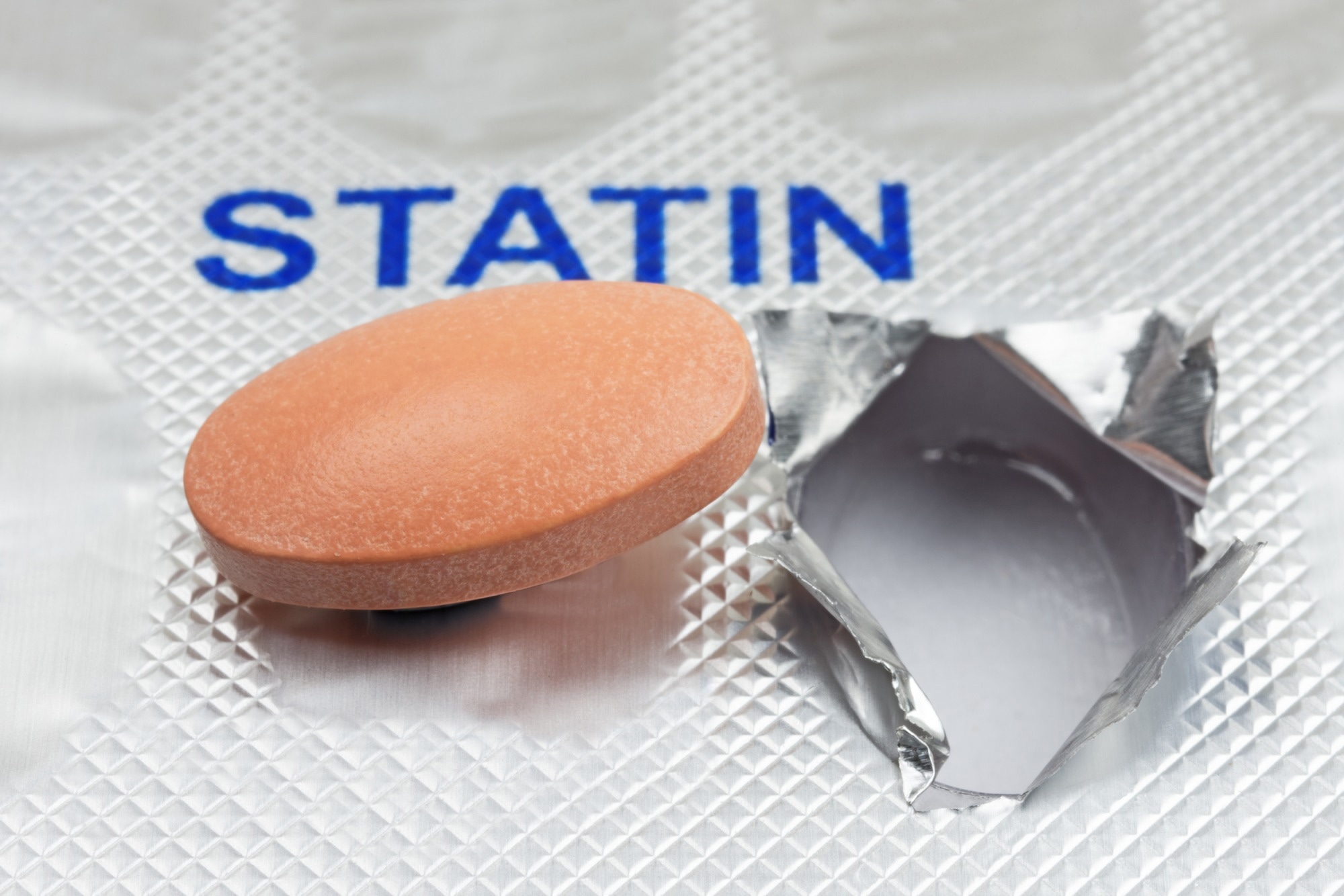 Study: Statin prevents cancer development in chronic inflammation by blocking interleukin 33 expression. Image Credit: roger ashford/Shutterstock.com
Study: Statin prevents cancer development in chronic inflammation by blocking interleukin 33 expression. Image Credit: roger ashford/Shutterstock.com
Background
Chronic inflammation is a primary cause of cancer globally, with illnesses such as inflammatory bowel disease (IBD), pancreatitis, and hepatitis becoming more prevalent. Immunological factors and cells such as mast cells, M2 macrophages, interleukin-10, interleukin-13, and tumor growth factor beta (TGF-β) contribute to carcinogenesis.
Inhibiting effector molecules to prevent cancers is difficult, given their involvement in cancer promotion.
Anti-inflammatory medicines, such as dexamethasone, have serious adverse effects, making it critical to discover safe molecules to reduce chronic inflammatory reactions and avoid cancer complications.
IL-33 is a primary initiator of cancer-causing chronic inflammation, although its mechanism remains unexplained.
About the study
In the present study, researchers investigated the potential of IL-33 and its receptor ST2 as targets for disrupting the chronic inflammatory milieu associated with disorders such as inflammatory bowel disease, chronic obstructive pulmonary disease (COPD), hepatitis, and pancreatitis.
The researchers examined the impact of interleukin-33 on chronic inflammation in mice. They subjected wild-type mice to chronic inflammatory models, such as dermatitis and pancreatitis.
They administered topical 2,4-dinitro-1-fluorobenzene to the murine animals to induce dermatitis, whereas to induce pancreatitis, the animals received intraperitoneal caerulein injections in phosphate-buffered saline (PBS). Both treatments lasted for 22 days.
The team used ribonucleic acid (RNA) sequencing on epidermal keratinocytes from mice treated with 2,4-dinitro-1-fluorobenzene (DNFB) versus those treated with acetone and caerulein (controls) against PBS to uncover the signaling mechanism that causes IL-33-related chronic inflammation.
They investigated toll-like receptor 3/4 (TLR3/4) signaling activation, Toll/interleukin-1 receptor domain-containing adaptor protein inducing interferon-beta (TRIF), and myeloid differentiation primary response 88 (MyD88) adaptor proteins.
Further, the researchers investigated whether interleukin-33 expression occurred downstream of TANK-binding kinase 1 (TBK1) and interferon regulatory factor 3 (IRF3) signaling by treating epithelial cells with polyinosinic-polycytidylic acid (poly(I:C)) and lipopolysaccharides (LPS).
They also exposed Irf3 knockout mice to chronic inflammatory conditions. To find a small-molecule IL-33 inhibitor, researchers searched a Food and Drug Administration (FDA)-approved drug library using a luciferase-based Il33 expression test. They confirmed the findings by testing pitavastatin's influence on the TBK1-IRF3 pathway in a pancreatic cell line.
The team found that geranylgeranyl diphosphate (GGPP)-mediated prenylation may target TBK1 regulation since an inhibitor of prenylation, GGTI-2147, inhibited TBK1 membrane localization and phosphorylation.
They also evaluated pitavastatin's ability to reduce IL-33 and inhibit inflammatory processes in vivo. They administered topical DNFB to mice on their back skin over 22 days and pitavastatin for three weeks to study its influence on chronic pancreatitis.
To investigate the effects of caerulein injections on mice, researchers used a chronic pancreatitis-associated pancreatic cancer model. They examined IL-33 and IRF3 expression among epithelial cells from 15 identical samples of normal pancreas, pancreatitis, and pancreatic ductal adenocarcinoma.
The researchers also used an epidemiology technique to study pitavastatin's influence on the risk of chronic pancreatitis and pancreatic cancer in humans. They compared patient cohorts from the TriNetX Diamond Network, comprising electronic health records of over 200 million individuals.
Results
The study found that environmental insults activate the toll-like receptor (TLR)3/4-TBK1-IRF3 pathway, which leads to IL-33 induction in the skin and pancreas.
Pitavastatin significantly reduces interleukin-33 levels by inhibiting TBK1 membrane recruitment and activation via the mevalonate route. Pitavastatin protects against chronic pancreatitis and related complications in an IL-33-dependent way.
TLR3/4 signaling is a crucial regulator of interleukin-33 levels during chronic inflammation. Statin inhibited interleukin-33 expression by modulating TBK1 signaling in cancer-prone chronic inflammation.
Pitavastatin lowered the membrane-bound and phosphorylated form of TBK1 (p-TBK1) by inhibiting the mevalonate pathway, reducing pancreatitis and pancreatic ductal adenocarcinoma (PDAC) risk in rats and humans.
TriF-mediated TBK1-IRF3 signaling influences IL-33 levels, with higher phosphorylation in skin treated with DNFB and pancreas treated with caerulein compared to controls.
TBK1-IRF3 signaling promotes the IRF3 target genes, tumor necrosis factor (TNF), chemokine interferon-γ inducible protein 10 (CCXL10), and IL-1β. Irf3KO skin and pancreatic therapy with DNFB and caerulein decreased IL-33 levels, mast cell populations, and epidermal thickness.
Five FDA-approved small compounds lowered IL-33/control luminescence absorption to less than 40%. Pitavastatin and zoledronic acid also suppressed poly (I:C)-induced IL-33 levels.
Conclusion
The study found that statins can reduce cancer-causing chronic inflammation by inhibiting the TBK1-IRF3-IL-33 signaling pathway. Lipophilic statins are a safe and efficient preventive option. The mevalonate pathway controls TBK1-IRF3 signaling, which may be essential for phosphorylation and activation.
The study findings further show that GGPP increases the membrane localization of critical signaling molecules.
Statins are a safe family of chemopreventive medicines that reduce chronic inflammation and its cancer-related consequences. They might potentially be a novel therapy for skin-related chronic inflammation.